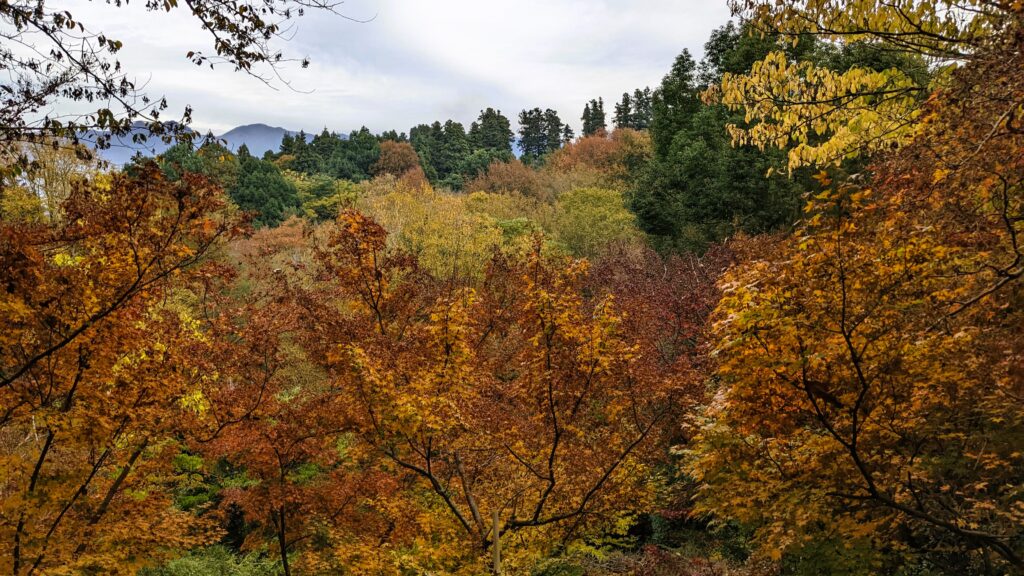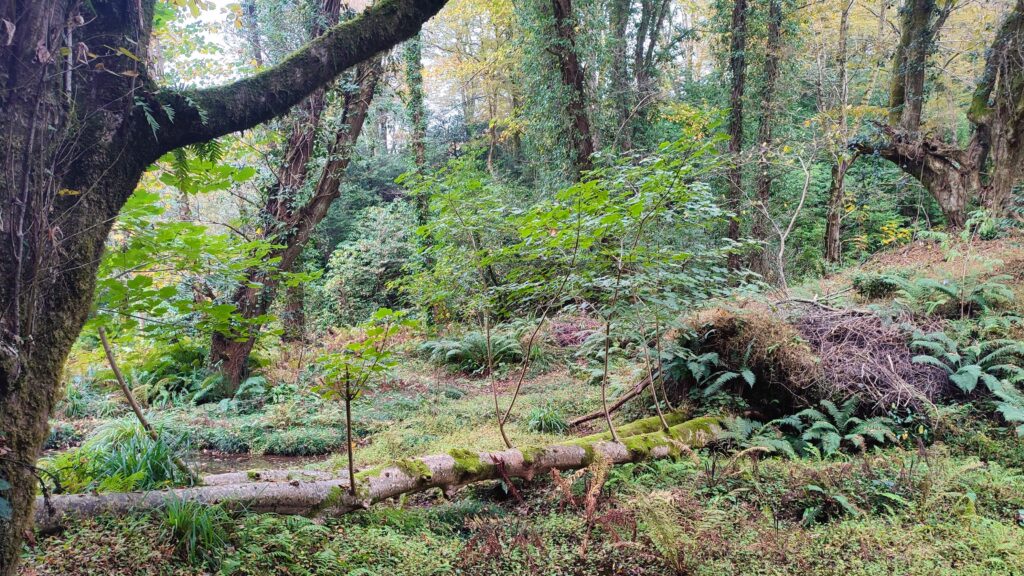When we researched the national nature conservation scene of Georgia upon our arrival here, we came across one name again and again: GIZ, the German Society for International Cooperation. They started working here in 1992, soon after the collapse of the Soviet Union, to bring Georgia on a course of sustainable development. This intrigues us to find out why a German development agency is so active in nature conservation in this small country. So, we contact Christian Gönner and Jan-Martin Staubach, the two responsible project managers for environmental projects. They agreed to meet us, but told us that their projects don’t really focus on biodiversity currently. After talking to them, we are even more intrigued by another topic: where does biodiversity protection end and how is it intertwined with the climate crisis, energy production and consumption, living standards and the forestry industry.
Biodiversity protection deals mostly with humans
When people think about biodiversity, they often picture untouched jungles full of colorful plants and rare animals. Hence, biodiversity protection evokes images of biologists sneaking through the jungle in search of these plants and animals. But in reality, to protect biodiversity, the focus species is always Homo sapiens. The biodiversity crisis is caused by human activities, so to combat it, we have to change human behavior. Plants and animals do fine by themselves in intact ecosystems, what threatens them is human activities. So, while we love the work as field ecologists out in nature with animals or plants, much of the most important work revolves around people.




One example for that is the project ECO.Georgia by the GIZ. Its full title “Enabling the implementation of Georgia’s forest sector reform” sounds rather technical, but it does important work that directly benefits Georgian biodiversity. Most of Georgia is mountainous and 40% of the country is covered in forest. At the same time, one third of Georgians live in poverty and gas or electric heating are still uncommon in rural areas. In fact, up to 90% of the rural population still uses firewood to cook and heat their homes. This means that forestry is an important industry in the country and the forests are under huge pressure.
Helping locals to protect local biodiversity
ECO.Georgia tackles this issue from different sides. It helps the Georgian government to implement a forest sector reform that has been developed for years. It will make forestry more environmentally friendly and sustainable. This means that forest management focuses more on conserving biodiversity and growing wood stocks using logging methods that are less damaging. Such a reform is urgently needed, because most of Georgian forests are degraded due to overexploitation. In some regions, it is so bad that there are barely any trees above 10 cm diameter left. It also includes measures that do not immediately come to mind like reinforcing forestry roads, so that they don’t get washed out and pollute waterways.
One of the most important parts of this reform is the education of forestry personnel. When the Soviet Union collapsed, so did the education system for forestry workers. Accordingly, they have not received formal training in the last 30 years. The GIZ hence offers courses for them and brings in international experts to train the trainers that will then spread the knowledge across the country. This is accompanied by rising salaries for forestry workers, which is necessary to attract motivated candidates and keep trained employees within the sector.
Tackling the climate AND biodiversity crisis
In addition, an important part of the project is the promotion of more efficient firewood stoves that can reduce firewood use by up to 50%. This goes hand in hand with the use of drier firewood that burns hotter and with less emissions. To enable this, the project also includes the construction of 15 woodyards, where wood can be dried for at least one year before use.


The project also aims to “directly benefit nearly 100,000 rural residents who use firewood by enabling investments in energy efficiency and alternative fuels, thereby reducing energy poverty, improving thermal comfort and the quality of the indoor and outdoor environment”. This includes, amongst others, subsidizing alternative fuels and training energy auditors that can advise citizens on efficient fuel use. The GIZ also works with local stove manufacturers to support the local economy.
Money makes the world go round
While finances are an unloved topic within nature conservation, they are central to this project. The success stands and falls with the financial outcome for rural communities. Locals do not want to chop down forests for firewood, but the more efficient stoves are expensive and many cannot afford them. To solve this, the project subsidizes up to 30,000 stoves with 30% of the purchase price. This means the purchase pays off after about four years, but the stoves themselves have a lifetime of up to ten years, in contrast to the currently used stoves that last only 4 years due to their thin metal walls. This financial benefit is one the most important selling points and communicating it to as many people as possible is a crucial part of the project that will be done by the Georgian government. Project partners also cooperate with Georgian banks to provide cheap loans to households that can still not afford a new stove.
Looking beneath the surface
From all of this, ECO.Georgia might not seem like a project that protects biodiversity. It is indeed more focused on reducing GHG emissions by increasing wood stocks and reducing firewood use. But in a country with 40% forest cover, forestry is a key to biodiversity protection. Georgian forests largely still have a pretty natural species composition, in contrast to other countries, but strong efforts are necessary to conserve this state. While ECO.Georgia does not target specific species, it does work towards making Georgian forests healthier. And healthy ecosystems are biodiverse ecosystems. We can monitor wolves, deer or boars as much as we want, if their home, the forest, is not healthy, neither will their populations be.
A broad but holistic and well-thought through project like ECO.Georgia might do more for a specific species than a strictly species-oriented project. Because it protects habitats sustainably and gets to the root of the problem by changing the lives of the people that currently exploit these habitats out of necessity and by providing a better life for them and the biodiversity around them.

